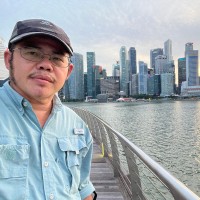JTC Corporation (JTC) on Monday signed a Memorandum of Understanding (MOU) with the National University of Singapore (NUS) to collaborate on a study commencing in 2026 on the establishment of a Sustainable Tropical Data Centre Testbed Phase 2 facility on Jurong Island. According to a press release by JTC, the testbed expands the scale and scope of the Phase 1 testbed in the NUS campus to enable data centre operators to test their low-carbon solutions in water- and energy-efficient systems on the island.
AI-ready and low carbon technologies that could be trialed include predictive energy management, intelligent workload optimisation, and liquid cooling (including direct-to-chip and immersion cooling). The Sustainable Tropical Data Centre Testbed Phase 2 will also study how facilities including data centers can become smart, microgrid-compatible assets, and integrate seamlessly with new energy sources.
JTC had earlier announced that 20ha of land on Jurong Island will be set aside for the development of Singapore’s largest low-carbon data centre park (with capacity of up to 700 MW) to support growing AI use cases. The Phase 2 Testbed is part of JTC and EDB’s vision to develop Jurong Island into a global testbed for new energies and low-carbon technologies including green data center innovations. About 300ha (10 per cent of its total land area) on Jurong Island has been set aside for new energy solutions infrastructure, including hydrogen, ammonia, sustainable aviation fuel and advanced battery systems.
At the same event marking the 25th anniversary of Jurong Island, JTC also signed an MOU with Keppel Ltd. (Keppel) to collaborate on a study commencing 2026 on the pilot deployment of a microgrid testbed for renewable energy and digital demand-response solutions trials. JTC and Keppel will also study thermal network systems that can minimise energy use for cooling for energy-intensive facilities such as data centres. These efforts enable energy efficient systems and circular-energy integration on Jurong Island by redistributing surplus energy. It was announced in early October that Keppel is leading a consortium that aims to import cleaner ammonia fuel and build a power plant to produce up to 65 megawatts (MW) of electricity – which can power over 90,000 four-room Housing Board flats for a year.
Meanwhile, Aster Chemicals and Energy Pte. Ltd. has announced a US$ 150 million investment to enable its facilities to generate and utilise low-carbon electricity, as well as supply additional low-carbon electricity to Singapore’s power grid. Aster and Air Liquide have also signed an MOU to produce low-carbon hydrogen on Jurong Island, using Air Liquide’s proprietary auto-thermal reforming technology with integrated carbon capture capabilities. This initiative is aligned with Singapore’s National Hydrogen Strategy.
“These partnerships show how strategic collaboration across the ecosystem can accelerate the transformation we envision for Jurong Island. As we celebrate Jurong Island’s 25th Anniversary, we look forward to more efforts that scale breakthrough solutions in new energies and low-carbon innovation,” said Jacqueline Poh, Chief Executive, JTC.
JTC and Economic Development Board (EDB) are Singapore’s government agencies that are responsible for planning, developing and managing sustainable, green and smart industrial estates; and strategies to enhance Singapore’s position as a global centre for business, innovation, and talent, respectively.




